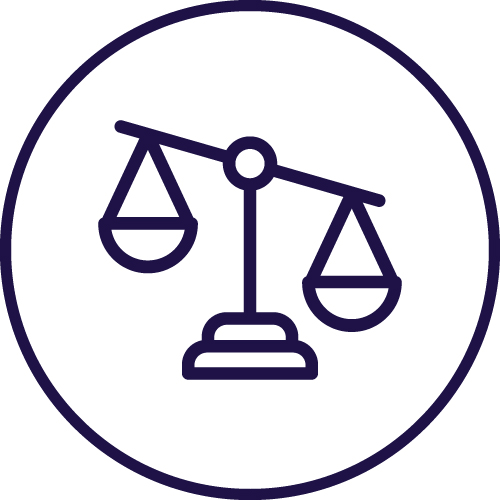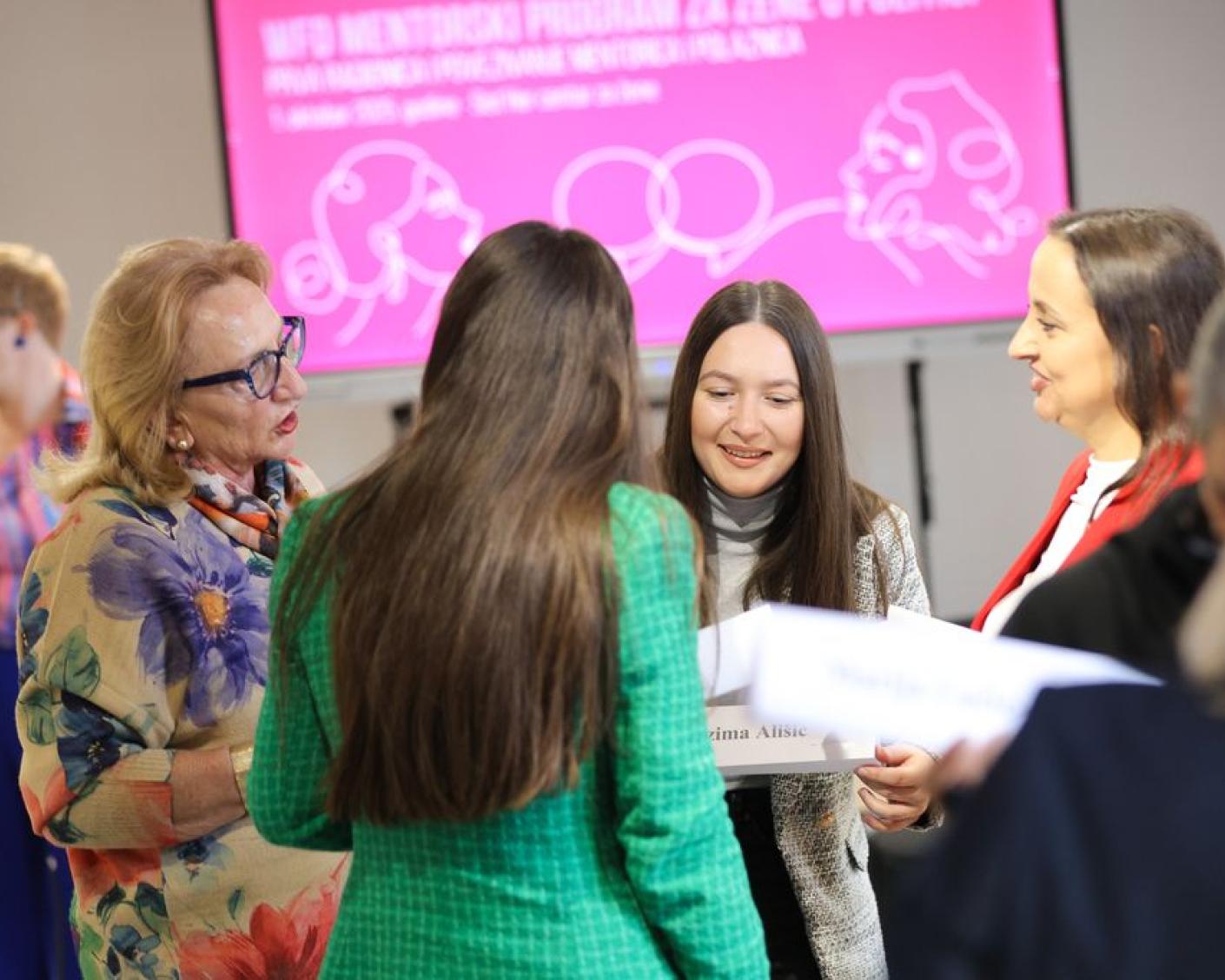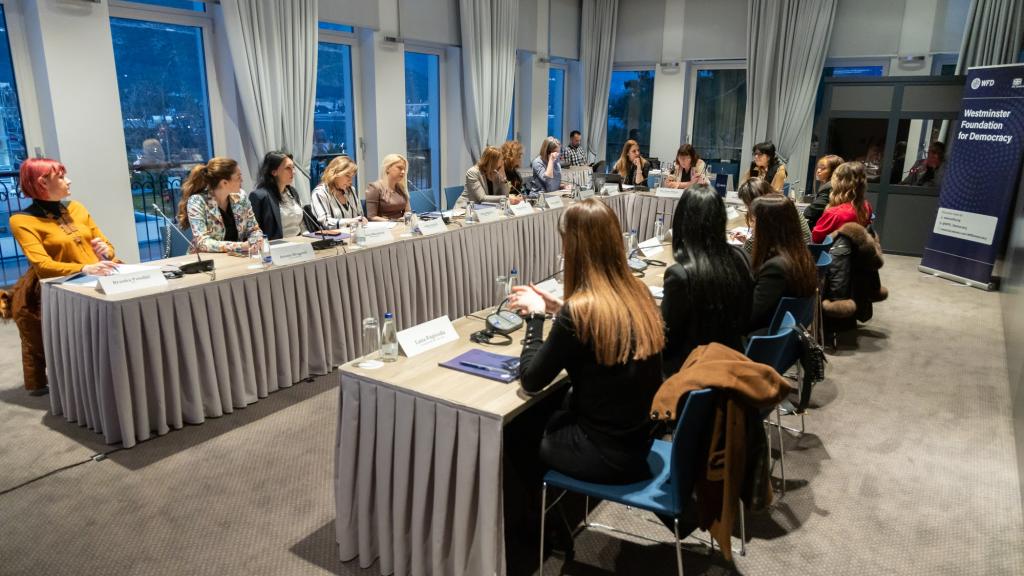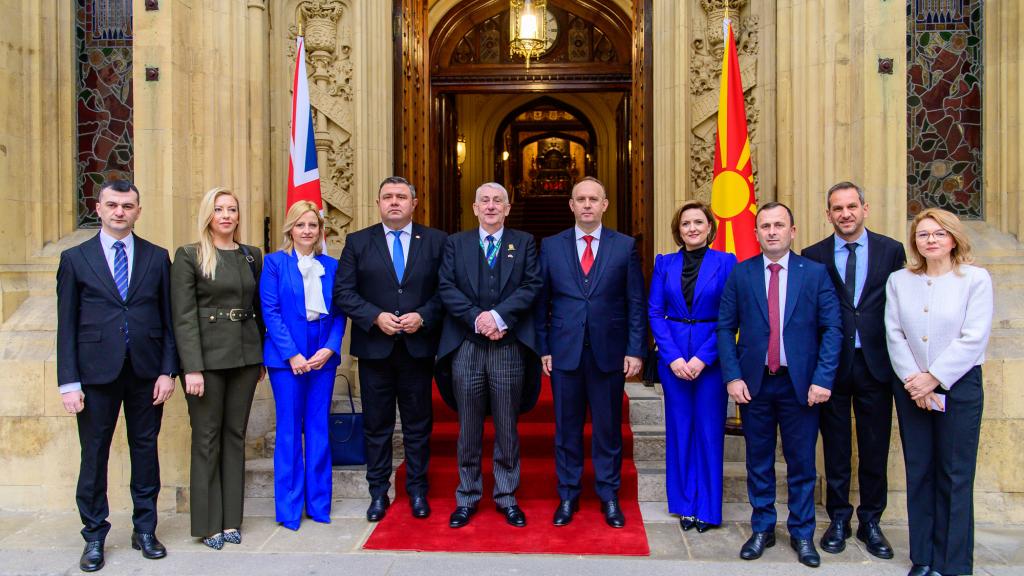The programme focuses on reforming political parties, empowering parliaments, and supporting independent oversight institutions to better serve citizens. Central to our approach is the inclusion of women, youth, and marginalised groups, ensuring that democratic processes reflect the diversity of society. By combining country-level interventions with regional synergies, the programme generates sustainable change and offers value for money. Adaptive in nature, we respond to shifting political contexts and emerging risks, while deepening resilience to both internal and external threats. Ultimately, the programme contributes to stability, trust in democratic institutions, and the region’s path towards European integration.
Political context
The Western Balkans face persistent challenges to democratic consolidation due to weak institutions, entrenched polarisation, and unresolved statehood questions. Secessionist tendencies, contested sovereignties, and frequent governance crises destabilise the political landscape. Corruption, limited rule of law, and the concentration of power undermine accountability and erode public trust, leaving democratic systems vulnerable to manipulation. These weaknesses are amplified by external pressures that exploit economic dependencies, social divisions, and information environments to reinforce instability. At the same time, ambiguity in the European integration process contributes to stagnation, disillusionment, and the rise of populist or illiberal movements. Together, these dynamics create a fragile context where internal vulnerabilities and external influences intersect, underscoring the need to strengthen institutional resilience and inclusive democratic practices.
Key areas of work
The Western Balkans Stability Programme aims to strengthen democratic resilience by addressing the structural weaknesses that leave institutions vulnerable to polarisation and undue influence. Through the programme, we are helping build institutions that are more transparent, inclusive, and accountable, while promoting citizen trust and long-term stability.
The programme focuses on three main objectives:
A cross-cutting priority is the promotion of women’s leadership, youth participation, and the inclusion of marginalised groups in political life. By combining country-specific interventions with regional approaches, the programme fosters collaboration, cross-learning, and sustainable reforms that align with democratic norms and European integration aspirations.
Our country programmes
Albania
WFD in Albania works to strengthen democratic governance by promoting transparency, accountability, and inclusivity within political parties and the Parliament. We support the Albanian Parliament in conducting effective law-making and oversight by piloting and institutionalising innovative mechanisms, including post-legislative scrutiny and corruption proofing of legislation.
Bosnia and Herzegovina
WFD in Bosnia and Herzegovina partners with people and institutions across the country to create opportunities for political collaboration to solve problems that matter for the everyday lives of BiH citizens. We promote women’s political leadership, supporting women politicians and addressing systemic barriers to their equal participation.
Montenegro
In Montenegro, WFD works to strengthen democratic institutions and promote inclusive governance. We do this by working closely with political parties and the Women MP’s Club in the Parliament of Montenegro to strengthen their internal democratic processes and foster a culture of cooperation. We partner with the Parliament and the State Audit Institution (SAI) to advance transparency and accountability measures, driving efforts to promote good governance and integrity in public administration.
North Macedonia
In North Macedonia, WFD partners with democratic institutions and decision-makers to support anti-corruption initiatives to enhance public procurement integrity and strengthen the capacities of the Parliament and the State Audit Office for improved public spending and more effective government scrutiny. We also promote transparency within political parties, fosters dialogue among young politicians to improve governance, and equips youth with civic education and tools for informed policy discussions and active participation in policymaking processes.
Serbia
WFD Serbia focuses on supporting key political institutions in the country, aiming to strengthen democracy, transparency, and a citizen-oriented approach to governance. Over the years, WFD has developed and implemented numerous projects and activities with political parties, the National Assembly of the Republic of Serbia (including its expert service and staff), public institutions, leading civil society organisations, research and educational centres and others.
Selected key results
Albania
Parliament adopted corruption-proofing and post-legislative scrutiny (PLS) methodologies into its rules of procedure.
Dialogue for Consensus sessions among MPs promoted cooperation across ruling and opposition parties and reached wide audiences.

Amendments to the Law on Political Parties improved leader integrity standards, access to finances for women’s party structures, and accountability.

Secured commitment for 10% of state party financing to be allocated to women’s structures of political parties.
Bosnia and Herzegovina

Political parties introduced codes of conduct, and were trained to combat hate speech. Significant reduction in hate speech observed during 2024 local elections.
Parties signed declarations for respectful campaigning and unity-based candidates achieved electoral success.

Amendments to Labour Law and Employment Mediation Law improved youth employment opportunities.

Cross-party consensus on harmonising maternity benefits across cantons advanced to formal proposals.
Montenegro

MAPOM (Mapping Parties in the Party System of Montenegro) assessments led to internal reforms in major parties, focusing on transparency, accountability, and inclusion.

An action plan adopted and a regional cooperation network against violence against women in politics (VAWP) established in partnership with the Women MPs Club.

State Audit Institution (SAI) improved cooperation with Parliament and finalised a safeguarding policy.

SAI presented audit findings on party financing to Anti-Corruption and Gender Committees for the first time.
North Macedonia

Parliament adopted a student internship scheme and initiated the creation of a Youth Committee.

Eight parties implemented PPTI recommendations, improving transparency, branch autonomy, and inclusion of women and young people.
State Audit Office (SAO) strengthened communication with the Public Prosecutor and prosecutions based on SAO reports increased.

Parliamentary Functional Analysis contributed to strengthening independence and accountability of the Assembly.
Serbia

Functional Analysis completed as part of the parliamentary reform. Parliament signed a new 4-year MoU with WFD and adopted annual planning procedures.

The ‘Parliamentorship’ initiative fostered cross-party cooperation on peer violence and youth policies.
Opposition coalition used WFD-supported geolocation maps to improve voter outreach and electoral results.

Completed reform for the Talent Fund with expanded scholarships, improved transparency. An alumni network was launched, and Talents Ecosystem was created.




